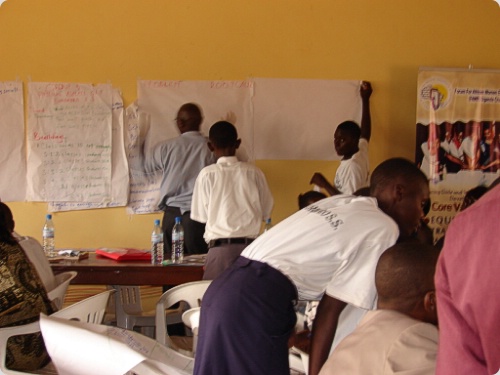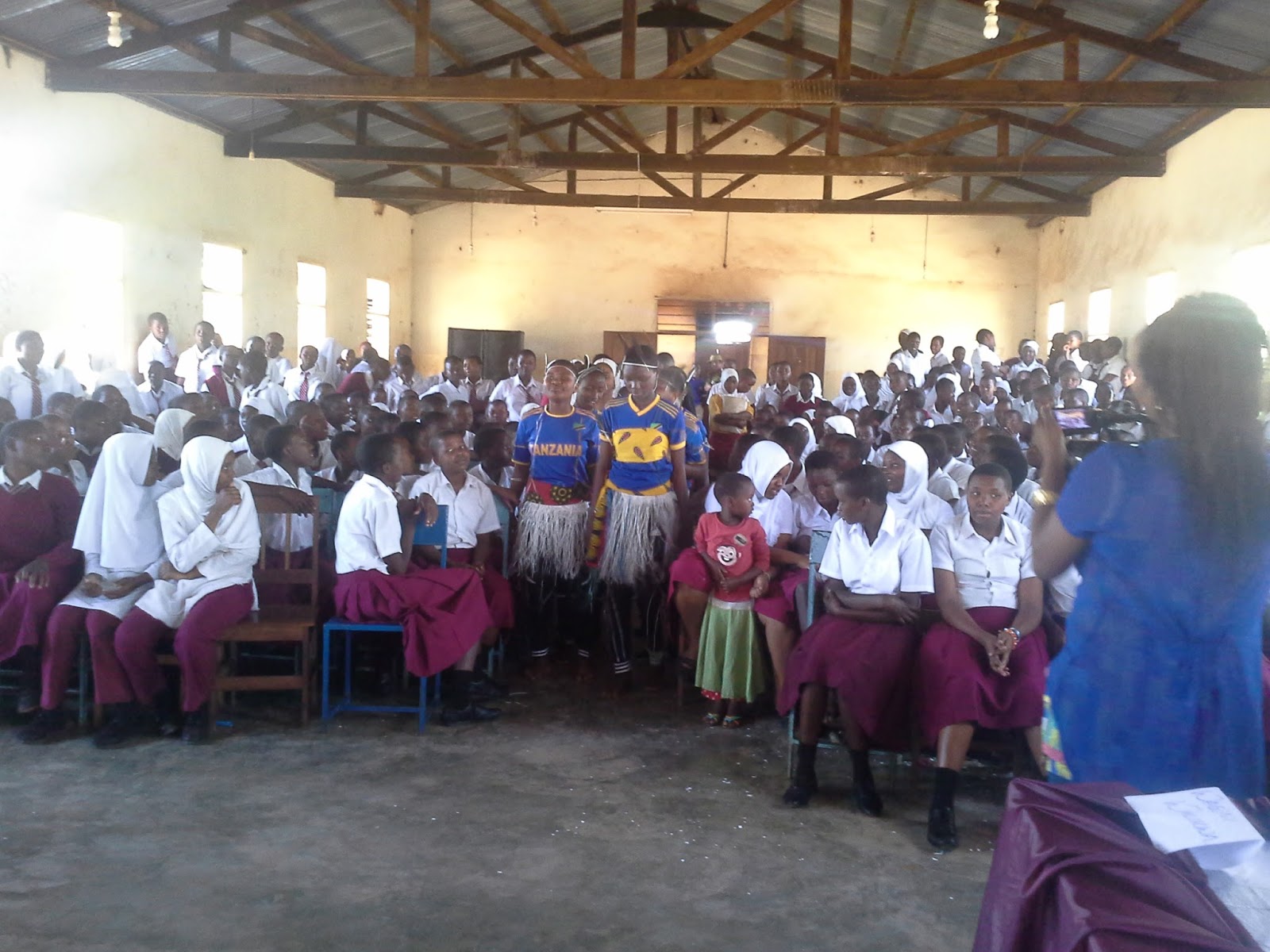Established 2004
- 119 female students
- 137 male students
- 1 female teacher
- 5 male teachers
2009
- 176 female students
- 148 male students
- 3 female teachers
- 4 male teachers
Challenges
- Poverty
- Lack of or inadequate infrastructure, teaching and learning materials
- Cultural practices
- Distance to school
COE components
- Bursaries for underprivileged students
- Science, Mathematics&Technology programme
- Tuseme youth empowerment programme
- Gender-Responsive Pedagogy training for teachers
Outcomes since creation
- Improvement in performance in national exams: from 10 girls and 8 boys in 2004 to 21 girls and 13 boys in 2008
- Improvement in performance in end-of-year school exams: from 104 girls and 110 boys in 2006 to 119 girls and 123 boys in 2008
- Improvement in enrolment rates for girls: from 17 girls in 2006 to 41 in 2008
- Improvement in transition rates to next level of education for girls: from 12 bursary beneficiaries in 2006 to 13 in 2008
- Reduction in schoolgirl pregnancies: from 1 in 2006 to 0 in 2008
Girls are empowered to:
- Discuss their problems with their teachers
Boys are empowered to:
- Be more conscientious in schoolwork
- Have improved interaction with girls
“There are 49 of us in our class – 27 girls and 22 boys. One day we were talking to the girls and we were saying that we boys are more intelligent than the girls. Our teacher said we should take a test to see who was right. At the end of the test, we had scored the same marks. Now we know that boys and girls are equal in schoolwork. Girls and boys do the same subjects and if we are given class work, we do it together.”
Raoul Tiole
13 years
“Going to school means I can understand many things and learn many things. I’d like to be a school teacher. I have to work hard, try to understand and discuss things with my schoolmates, both the boys and the girls. I want to do well in school to help my brothers and sisters who are also at school. Thanks to FAWE, many of my sisters are in school.”
Alizèta
13 years






Leave A Comment